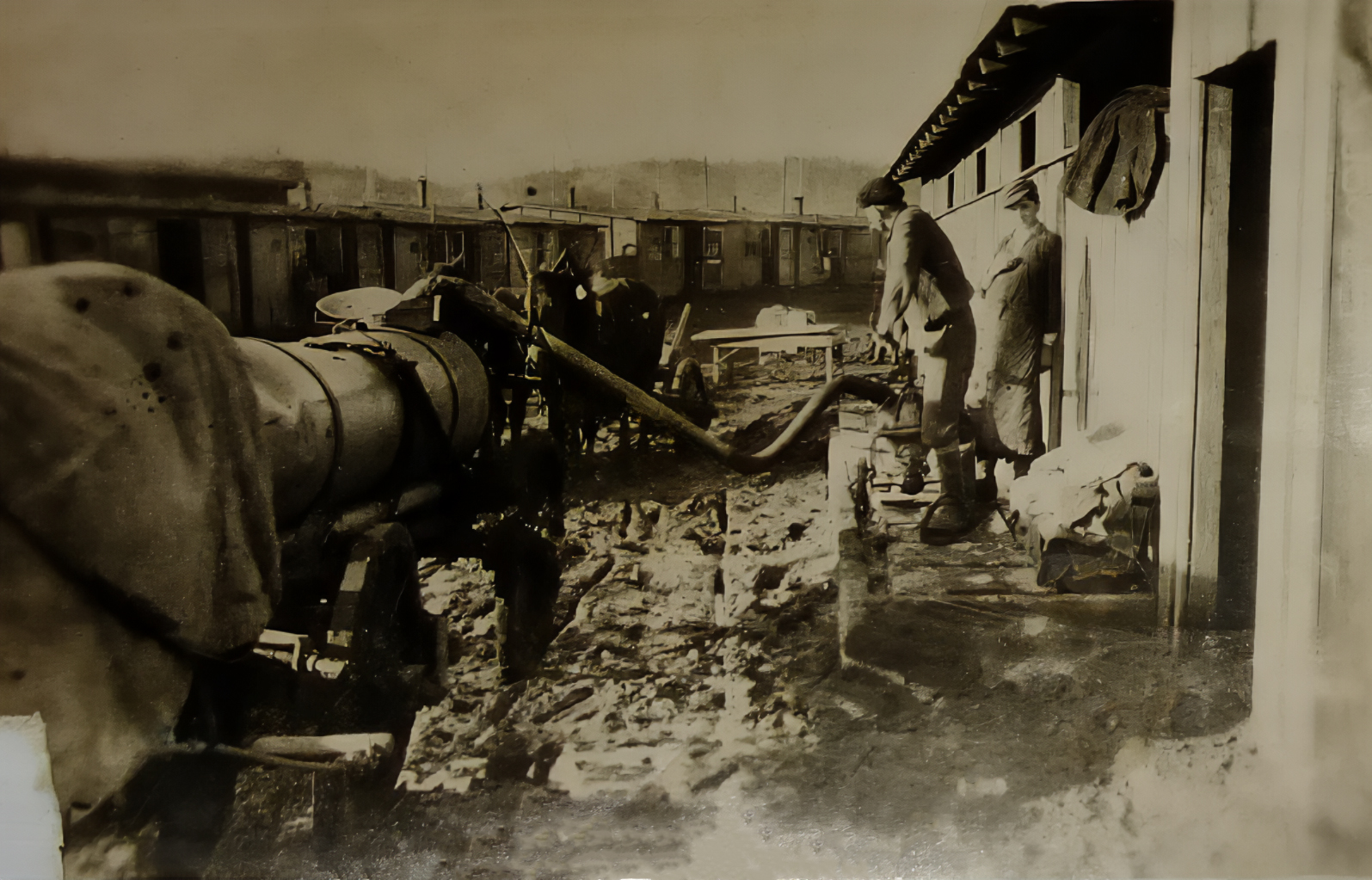Food dominated daily life in the camp. Each man received a small piece of bread, a few boiled potatoes, and a thin soup. Red Cross parcels were vital:, they contained tins of corned beef, biscuits, porridge, tea, and sometimes chocolate. These parcels were organised through the British Red Cross, which worked across Europe to deliver food and comfort to prisoners on all sides of the conflict. Prisoners shared and traded these supplies carefully, as they often meant the difference between hunger and survival.
One of the most striking stories is that of a fellow Cypriot, Televantos. After receiving a share of a Red Cross parcel, he ate a tin of condensed milk and a packet of porridge together, straight from the packet. Soon after, he was in severe pain. The medical staff could not save him. Before he died, he told another prisoner, “I was greedy, sir.”
Life in the camp continued, shaped by hunger, exhaustion and the constant fight against dirt and disease.
Phylactis remembered being marched to the sea for delousing under armed guard. Even then, the lice returned within days. He recalled one man nicknamed Birtas, whose coat was covered in black lice crawling in lines “like migratory birds.” Phylactis shouted at him to wash, and when the man refused, he and a German guard boiled the man’s clothes in hot water. The man stood in the snow, shouting, “You’re going to kill me, Sergeant Phylacti!”
The winter of 1942-43 was bitterly cold. One morning, the water Phylactis used to wash froze in his hair. He used a bottle of shampoo that had been traded for a chocolate bar, but soon after, his hair began to fall out in clumps. Unsure whether it was the cold, the shampoo, or hunger that caused it, he threw the bottle away and carried on.
When lice spread out of control, prisoners were ordered to strip and march through the city to the sea for a bath. Civilians watched as they walked barefoot under guard, carrying their clothes for disinfection.
During one of these marches, a Cypriot soldier stepped out of line to pick a handful of broad beans from a nearby field. A guard shot him dead.
Phylactis recorded that the man had not tried to escape — he had only stepped aside to pick some beans. He noted that the guard’s reaction showed how little value was placed on prisoners’ lives.
